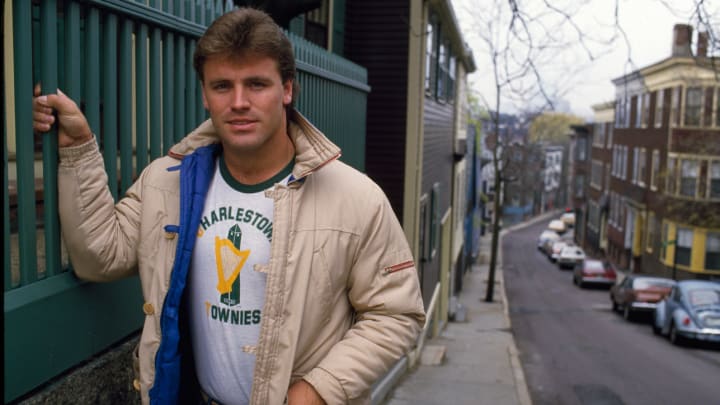Howie Long on Paul Zimmerman: ‘He Had the Same Passion for the Game That I Had’

Paul Zimmerman, who covered the NFL for Sports Illustrated for 29 years, died on Nov. 1 at age 86. One of Dr. Z’s most memorable stories, “The Long Way Up,” ran in the July 22, 1985, issue. It was a profile of future Hall of Fame defensive end Howie Long, telling the story of his upbringing in the Charlestown section of Boston, where he was raised largely by his four uncles and his grandmother. This column appears in the November 19 issue of Sports Illustrated. Subscribe here.
For more Dr. Z content, read our special coverage and The MMQB’s weeklong tribute to Paul.
As a young guy, 24 going on 25, that was the first time I had let someone into my extended family. We gave Paul the kind of access we hadn’t given anyone—and haven’t given anyone since.
Paul was a throwback to another era of football writer. He was a guy you could easily see in the movie Seabiscuit. In many ways he seemed like he could almost be one of my uncles. I trusted him. He seemed to have the same kind of passion for the game and appreciation for the history of the game that I had. And in many ways he saw something in me that—quite frankly—at that time I don’t know that I saw myself.
When the story first came out, I was a little uncomfortable, because when you let someone inside your family, you’re not sure how it’s going to turn out. And then it hits the cover of Sports Illustrated. I don’t know that someone on the outside looking in could have done a better job than Paul did capturing the essence of my background. People still reference it, whether I’m walking somewhere in a city, or I’m at a stadium or just in a hotel: “I remember that Sports Illustrated story back in 1985. Incredible story.” Paul and I will forever be linked because of that, and that led to us having a kinship—even if it was an unspoken one.
On the exterior, Paul was kind of the curmudgeonly sports writer, an X’s and O’s guy. “The game! The game! I don’t know where it’s going!” It’s like my Uncle Billy. He’s the last living uncle of the four who were featured in the story. He’s a very loving person, but he’s not someone who shows that.
When Hall of Fame voters decide who is inducted, it’s a really difficult process. Players have to have an advocate in the room, and it’s typically their own local beat writer. As I came to find out much later, my two strongest advocates ended up being guys who I had great respect for. Will McDonough was a Boston boy, and as you know, that is a tribal community, so he pounded the table for me. And the other advocate was “Uncle Paul.” One vote could determine enshrinement. Their passionate belief in me obviously influenced other voters who respected their knowledge of the game. If my path doesn’t cross those two gentlemen, who knows?
Paul’s football knowledge was incredible. He had an appreciation particularly for line play and all of its nuance. He had a vision in his mind of how the game was supposed to be played, and anything short of that was unacceptable.
Even back in the ’80s, he was unique among sportswriters. Let’s say you’re sitting at your locker and there’s a pool of reporters in front of you after a game. Paul would just stand out. He was in black and white, and the rest of them were in color.
As a broadcaster, I’ve always taken the approach that I want to be informed. I want to understand. It’s easy to mail it in and throw a take out there. With Paul, I felt like, if he was giving you an opinion on something, he understood it and he’d done his research and had watched the film.
I’ve always taken that approach. I don’t believe in beating people up just for the sake of grabbing a headline. Paul never did that. He was one of the voices that was the conscience of the sport.
Question or comment? Email us at talkback@themmqb.com.
